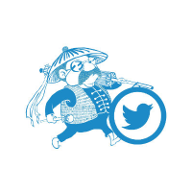









01 October 2017 by Roy Preece
In September university tutors in England who have international students from Taiwan may be pleasantly surprised to receive unexpected presents, for the 28th of September is celebrated in Taiwan as National Teachers’ Day. The role of teaching is honoured in Chinese society, although as so often with respected occupations everywhere, that does not mean that teachers are well-paid or powerful. On this day pupils show their respect and thanks to their teachers for their education, and this is usually well-deserved since education in Taiwan, as in many Asian countries, is generally excellent. Children may also perform little ceremonies or concerts for their teachers.
In some schools students hit a large drum called The Drum of Enlightenment, believing that this will help them to become enlightened themselves. Teacher’s Day also serves to remind the government to look after teachers and to protect teachers’ rights and many local education institutes and civil offices award certain teachers for their excellence and positive influence at this time.
The custom is frequently linked with the name of the great philosopher and teacher Confucius, although its origin seems much more recent. Confucius taught there was a duty on elders to pass on the principles of usefulness and good behaviour to the next generation, and on young people to respect the elders for their wisdom. He is considered the embodiment of the Chinese moral, family, and education philosophy and in Taiwan there is a strong belief in the importance of family and education. Confucius lived over two thousand years ago, but teachers’ day seems to have been started by the Chinese Nationalist government only in 1931 and then taken to Taiwan when the Nationalists sought refuge from the mainland Communist regime.
Various dates have been used for Teachers’ Day, depending it seems on changing estimates of Confucius’ birthday, but in 1952 Taiwan settled on 28th September by the Western calendar. Many countries observe a national teachers’ day, especially in Asia and South America, but the dates may differ because some countries, such as India, base the date on one of their own national figures. Mainland China has had conflicting attitudes to Confucius, initially rejecting him as part of the history to be banished in the Cultural Revolution, but more recently coming to see his teaching on community, respect and harmony as perhaps useful to the government. Chinese attach great significance to homophones, that is words which sound the same, and this maybe is the reason that mainland China chose September 10th (9/10) as National Teachers’ Day since "teacher" (教師/教师 jiao shi) sounds very like the two digits 9 (九jiu), 10 (十shi).
Formerly National Teachers’ Day was a national holiday in Taiwan, but no longer. However, celebrations may take place in the many temples of Confucius around the island. Known as the "Grand Ceremony Dedicated to Confucius" (祭孔大典), the ceremony begins at 6.00 in the morning with drum beats and 54 musicians dressed in robes with blue belts, and 36 (or 64) dancers dressed in yellow with green belts. They are led by one of Confucius's descendants and followed by ceremonial officers. At one time three animals were sacrificed: a cow, a goat, and a pig, and the hairs plucked from these sacrificial animals were called the Hairs of Wisdom, but this custom is very unusual in modern Taiwan.
National Teachers’ Day in Taiwan has come to be an essentially secular occasion, albeit with some remaining symbolic activities. Insofar as it makes for good will and respect between teachers and pupils it seems to work very well.